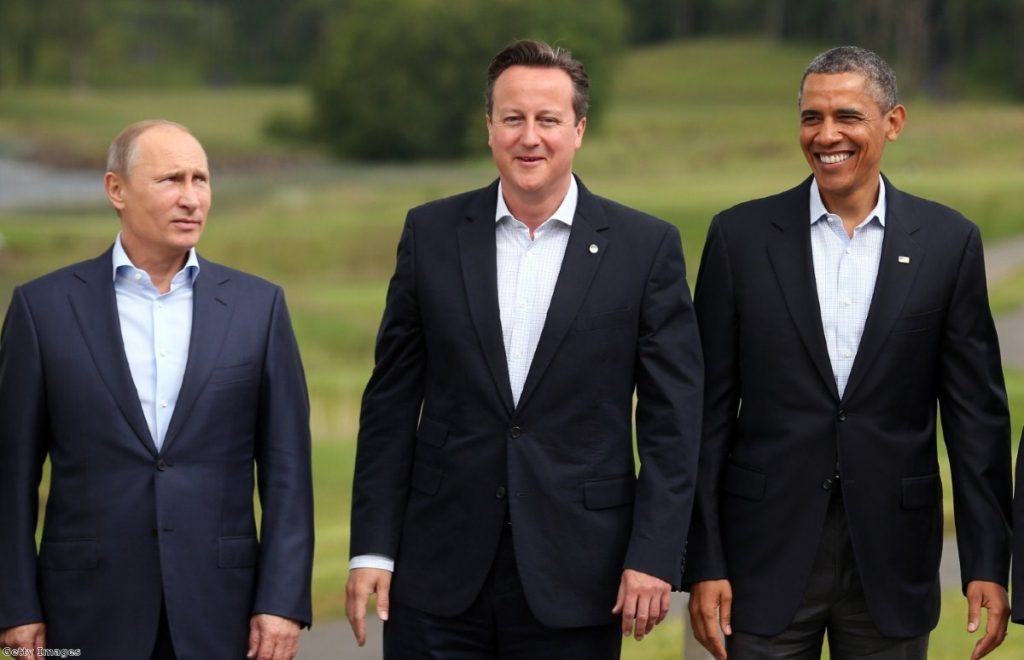G8: Cameron gets his Syria plan – but what did he sacrifice?
David Cameron claimed to have secured a substantial achievement on Syria today, after he emerged from the G8 summit with a seven-point plan agreed by all the leaders present.
After a gruelling two days of talks, Cameron used a closing press conference to say his plan made substantial gains from what had been accepted by Russia in the June 2012 Geneva communiqué, but there was considerable scepticism about what had been sacrificed in Lough Erne.
"It's no secret there were very different views around the table," Cameron told reporters.
"Reaching this agreement was not easy. It was made possible by the frank discussion that was a key feature of this G8.


"The people who predicted no statement, or a weak statement – or a statement of the G7 versus the G1 – were sadly mistaken."
The seven-point plan has several measures which were not present in previous agreements, but it also seems to drop the requirement for president Bashar al-Assad to step down ahead of transitional arrangements.
The plan called for leaders to bring "maximum pressure" to bear on all sides for a peaceful solution and looked to a 'Geneva Two' summit to establish a transitional governing body for Syria with full executive authority.
But the failure to mention the need for Assad to step down raised suspicions that Russian president Vladimir Putin has succeeded in pushing negotiations further back than they were even last year.
Cameron responded to that accusation angrily during his press conference, saying: "It's unthinkable [Assad] plays any part in the future of his country. He has blood on his hands."
The plan will see the humanitarian response to the Syrian civil war stepped up, with nearly $1.5 billion (£960,000) of new money, in which Britain will double its contribution.
Importantly, Cameron explicitly said that Syrian institutions would be maintained through any transition.
The promise is a direct lesson of Iraq, when the abolition of state institutions drove civil servants and public sector workers towards terrorists and created a vacuum of power.
But it was also an effort by world leaders to encourage a coup against Assad.
"Those who have been loyal to Assad but know he has to go – they should take note of this point," Cameron said.
The agreement also said world powers would work together to get rid of terrorists and extremists in Syria and condemned the use of chemical weapons "by anyone".
The agreement allowed for UN weapons inspectors to go to Syria unhindered.
Finally, it said world leaders would support the future government of Syria "that is neither Sunni, Alawite or Shia".
"Sadly the statement this afternoon suggests the prime minister's strategy has failed," shadow foreign secretary Douglas Alexander said.
"It's far from obvious what Putin has agreed to that wasn’t agreed to last year.
"A strategy that puts so much effort in lifting the EU arms embargo in order to shift the Russian position will come under scrutiny in the months ahead."
The peace conference is tabled to take place "as soon as possible", although it is unlikely to be any sooner than August.
Western leaders must now work out how to get rebel leaders around the table. Currently, the resignation of Assad is a precondition of negotiation for the opposition.

